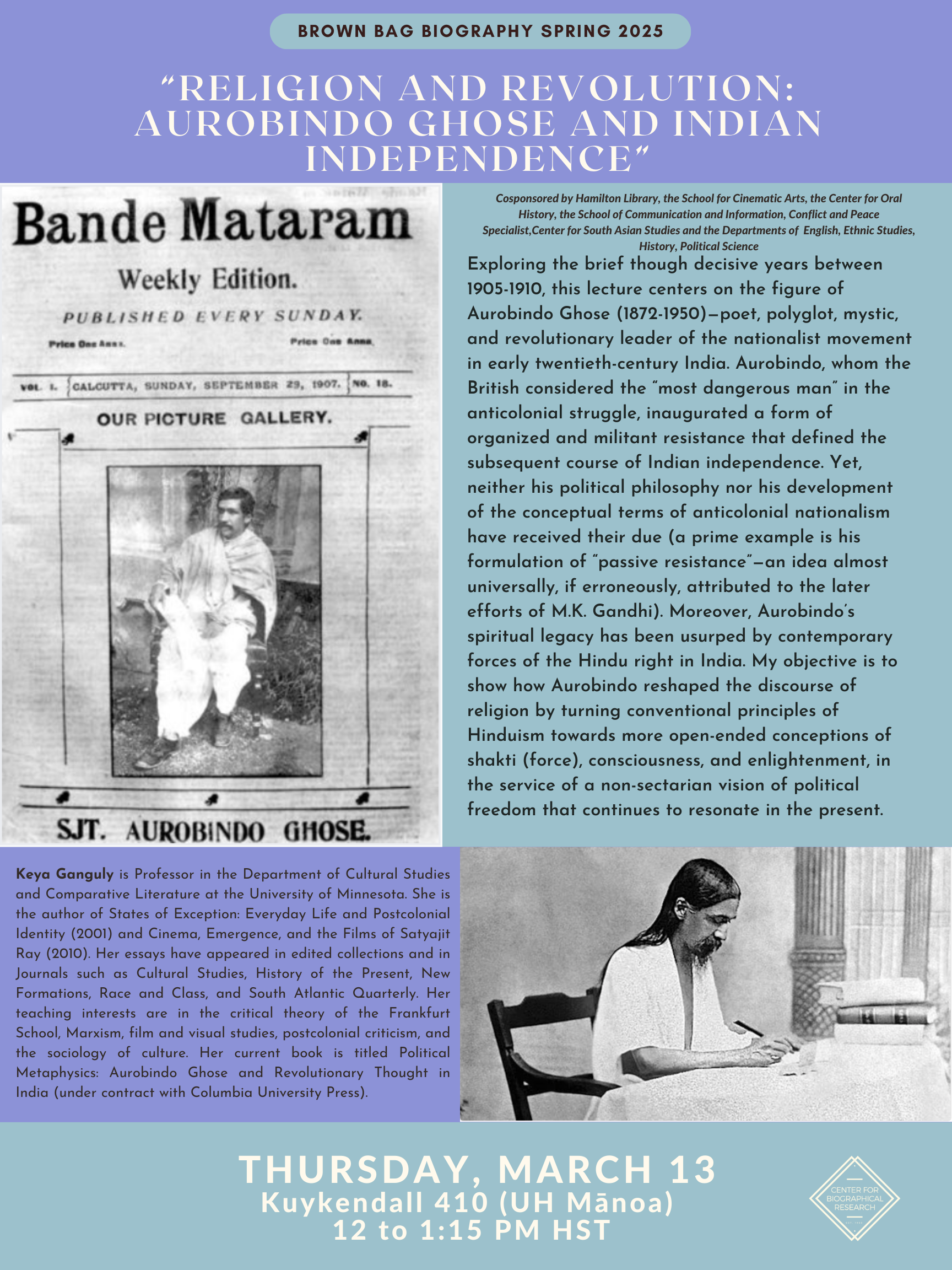
Brown Bag Biography with Keya Ganguly
“Religion and Revolution: Aurobindo Ghose and Indian Independence”
Co-hosted by the Center for Biographical Research, the Department of English, and the Center for South Asian Studies
WHEN: Thursday, March 13
WHERE: Kuykendall 410
TIME: 12-1:15pm
Abstract:
Exploring the brief though decisive years between 1905-1910, this lecture centers on the figure of Aurobindo Ghose (1872-1950)—poet, polyglot, mystic, and revolutionary leader of the nationalist movement in early twentieth-century India. Aurobindo, whom the British considered the “most dangerous man” in the anticolonial struggle, inaugurated a form of organized and militant resistance that defined the subsequent course of Indian independence. Yet, neither his political philosophy nor his
development of the conceptual terms of anticolonial nationalism have received their due (a prime example is his formulation of “passive resistance”—an idea almost universally, if erroneously, attributed to the later efforts of M.K. Gandhi). Moreover, Aurobindo’s spiritual legacy has been usurped by contemporary forces of the Hindu right in India. My objective is to show how Aurobindo reshaped the discourse of religion by turning conventional principles of Hinduism towards more open-ended conceptions of shakti (force), consciousness, and enlightenment, in the service of a non- sectarian vision of political freedom that continues to resonate in the present.
Author bio:
Keya Ganguly is Professor in the Department of Cultural Studies and Comparative Literature at the University of Minnesota. She is the author of States of Exception: Everyday Life and Postcolonial Identity (2001) and Cinema, Emergence, and the Films of Satyajit Ray (2010). Her essays have appeared in edited collections and in journals such as Cultural Studies, History of the Present, New Formations, Race and Class, and South Atlantic Quarterly. Her teaching interests are in the critical theory of the Frankfurt School, Marxism, film and visual studies, postcolonial criticism, and the sociology of culture. Her current book is titled Political Metaphysics: Aurobindo Ghose and Revolutionary Thought in India (under contract with Columbia University Press).
